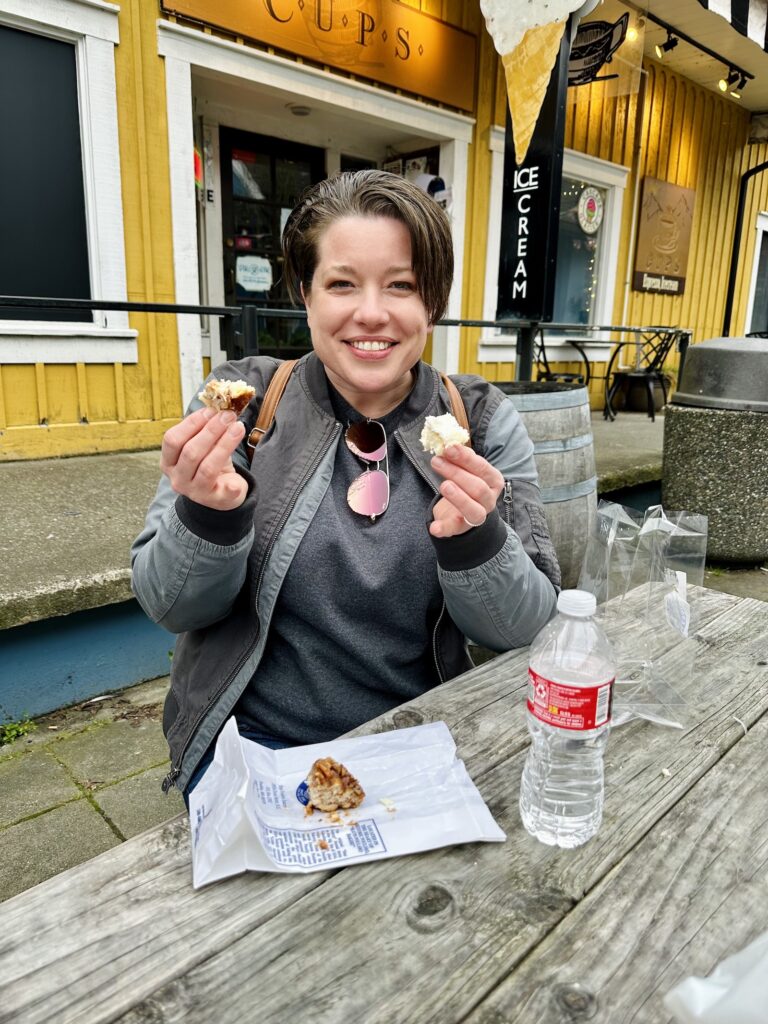
The hit or the serenity?
In Operating Instructions: A Journal of My Son’s First Years, Anne Lamott writes about a time she was fixated on a married man—someone she adored and who adored her back. She confessed to a friend, a recovering addict and alcoholic, that she was constantly tempted to call him. Every time they spoke, she wanted to shower him with affection, caught up in the rush of how “luscious and powerful” he was. Her friend listened and kindly replied, “Yeah, yeah, I get it, I’ve done it. But I think each step of the way you gotta ask yourself, Do I want the hit or do I want the serenity?”
“It seemed one of the most profound things I’d ever heard,” Anne reflects. It’s a question that has helped her hundreds of times since—whether with food, men, or anything else that threatens to hijack her peace.
Laundry or writing?
When Louise DeSalvo started writing, she was working full-time, raising two toddlers, caring for her elderly parents, and running a household. Still, she aimed to write two hours a day when she could. If she couldn’t, she would at least write something. “I tried to write every day, no matter what,” she said. “I wrote when my children were napping, or later, when they attended school. Many parents squander that precious time on household tasks. Instead, I did laundry, shopped, and cooked when my children were around.”
Choosing to do one thing means choosing not to do something else. If you want time to write, you have to give something up. “All too often, aspiring writers choose to give up writing. My mentor said it’s important to say, ‘I’m choosing to do the laundry instead of writing,’ instead of saying, ‘I don’t have time to write.’”
Try saying it throughout the day: I’m choosing to read the news instead of a book. I’m choosing to reply to emails instead of starting the project. I’m choosing to look at beautiful houses on Zillow instead of cleaning my own. And on and on.
Special or happy?
A highly respected financier in her mid-fifties—once a star on Wall Street—began to worry her skills were slipping. She wasn’t as sharp as she used to be, and younger colleagues were questioning her judgment. Panicked, she reached out to social scientist Arthur Brooks.
As they spoke, Brooks learned she was deeply unhappy. She “lived to work” and was constantly exhausted. Her marriage was falling apart, and her relationships with her adult children were strained. Now, she feared she was losing her edge in the one thing she had left: her career.
To Brooks, the answer seemed obvious. Why hadn’t she taken time to revive her marriage, reconnect with her kids, or cut back on work? “I knew that her grueling work effort had made her successful in the first place,” he said, “but when you figure out something has secondary consequences that are making you miserable, you find a way to fix it, right? You might love bread, but if you become gluten intolerant, you stop eating it because it makes you sick.” Why hadn’t she been working on the obvious problems?
She thought about it for a moment, then looked at him and said flatly, “Maybe I would prefer to be special rather than happy.”
Brooks was stunned. Her answer lingered in his mind. It reminded him of something. But what? Then it hit him.
Her reasoning—that she preferred being special over being happy—was not unlike the response given by a recovering drug addict when asked why he had continued to get high even though he was fully aware it was making him miserable. “I cared more about being high than being happy,” the addict had said.
The financier, Brooks realized, was an addict, too. A work addict. She cared more about being special than happy. She was choosing her ego over herself, the hit over serenity.